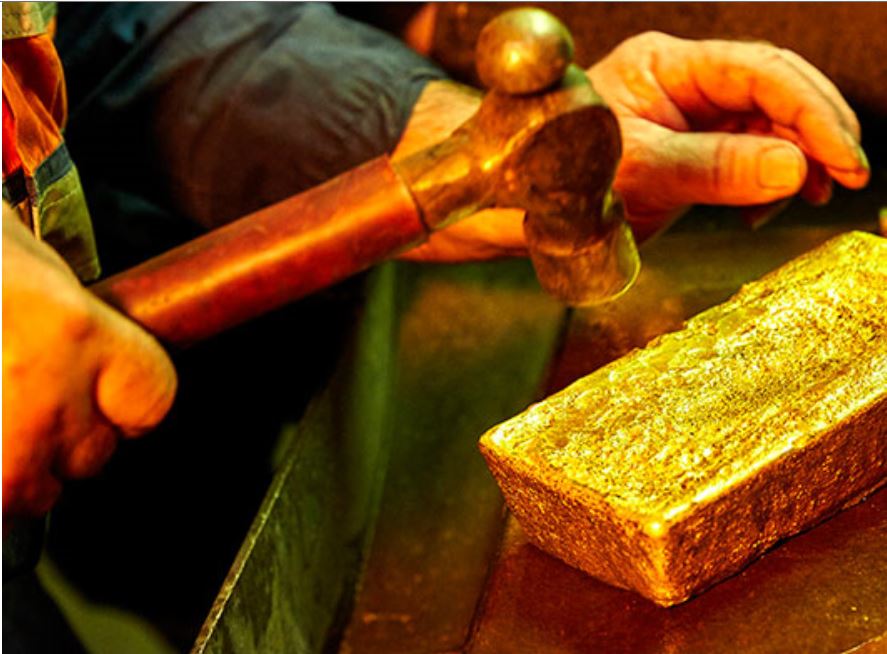Kirkland Lake shutting Aussie gold projects

A gold bar poured at the Fosterville Gold Mine in Victoria, Australia. Source: Kirkland Lake Gold Ltd.
Kirkland Lake Gold Ltd. [KL-TSX, NYSE; KLA-ASX] has unveiled plans to close two of its “non-core” gold projects in Australia’s Northern Territory. As a result, around 250 workers will lose their jobs.
The announcement comes just weeks after Kirkland Lake completed the $4.9 billion acquisition of Detour Gold Corp. [DGC-TSX], an intermediate gold producer which operated the large-scale Detour Lake Mine in northern Ontario about 300 km northeast of Timmins.
Kirkland Lake Gold is a mid-tier gold producer with operations in Canada and Australia. The company expected to produce between 950,000 ounces and one million ounces of gold in 2019. In Canada, its portfolio includes the Macassa Mine and the Holt Complex, which consists of three mines (Holt, Holloway and Taylor).
The Australian portfolio includes the Fosterville Mine in Victoria State, and the Northern Territory operation, including the Cosmo Mine and Union Reefs mill. Cosmo was placed on care and maintenance on June 30, 2017.
Combined production from the assets of both Kirkland Lake and Detour Gold is expected to be around 1.5 million ounces in 2020.
On Wednesday, Kirkland Lake said test mining and processing at the Cosmo Mine and the Union Reefs processing plant, both near Pine Creek south of Darwin, will cease at the end of March. Kirkland Lake had been working to restart mining at Cosmo since production was halted in May, 2017, and was in the final stages of working through approvals for an underground mine at Union Reefs. It had plans to produce around 100,000 ounces of gold from the Pine Creek Region in 2020. But in a letter to employees that was obtained by an Australian media outlet and republished in Canada by Scotiabank, the company outlined plans for Kirkland Lake to continue some exploration in the Pine Creek region, progress the environmental impact statement for a mine at Union Reefs and “aggressively lower its environmental liabilities.”
In November 2019, the Northern Territory government issued a progress report declaring Kirkland Lake had “given the nod of confidence to the Territory economy” when the company reopened the processing mill at Union Reefs.
However, a small colony of the rare ghost bats proved to be a big hurdle in Kirkland Lake’s EIS.
In January, Kirkland Lake’s project manager Mark Edwards said the ghost bat was the “main issue” being considered in the EIS. “I can absolutely guarantee that timing of any approvals hasn’t played a part in this,” Kirby said.
On Wednesday, Kirkland Lake shares eased 1.5% or 65 cents to $43.26 on volume of 926,745. The shares are currently trading in a 52-week range of $38.80 and $67.88.
